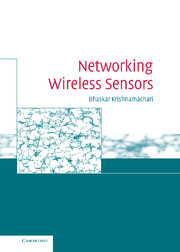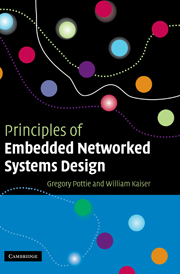Networking Wireless Sensors
Wireless sensor networks promise an unprecedented fine-grained interface between the virtual and physical worlds. They are one of the most rapidly developing new information technologies, with applications in a wide range of fields including industrial process control, security and surveillance, environmental sensing, and structural health monitoring. This book is motivated by the urgent need to provide a comprehensive and organized survey of the field. Ideal for researchers and designers seeking to create new algorithms and protocols, and engineers implementing integrated solutions, it also contains many exercises and can be used by graduate students taking courses in Networks.
- Comprehensive coverage of topics in wireless sensor networks, describing well over 100 key algorithms, protocols, and analytical results
- Many exercises involving in-depth reasoning, calculations, and simulations
- Author developed one of the first regular courses on Wireless Sensor Networks
Product details
January 2006Hardback
9780521838474
216 pages
254 × 179 × 16 mm
0.595kg
Available
Table of Contents
- 1. Introduction
- 2. Network deployment
- 3. Localization
- 4. Time synchronization
- 5. Wireless characteristics
- 6. Medium access and sleep scheduling
- 7. Sleep-based topology control
- 8. Energy-efficient and robust routing
- 9. Data-Centric networking
- 10. Transport reliability and congestion control
- 11. Conclusions.





